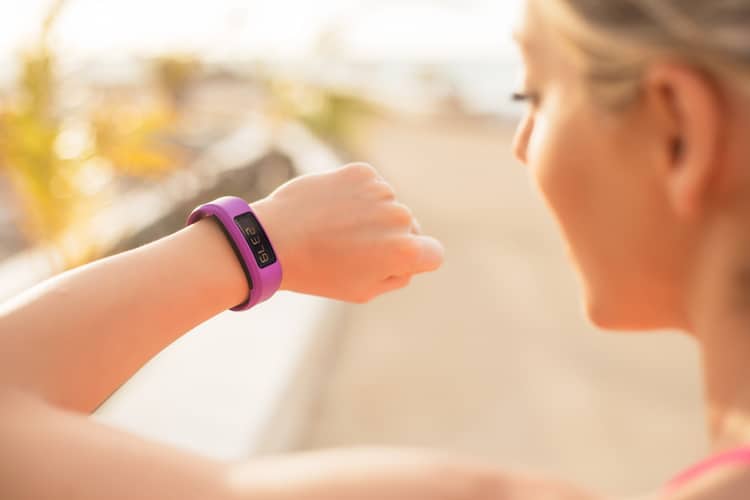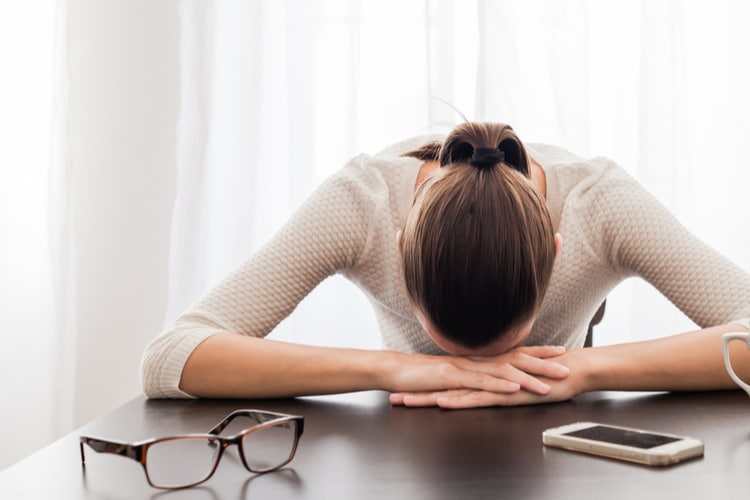Daily Calorie Intake: How Many Calories Should I Eat to Lose Weight?

If you’re trying to trim up or slim down, you’re probably asking yourself how many calories should I eat to lose weight. Unfortunately, that’s a pretty difficult question to answer! Each individual’s calorie needs are unique, and there are so many factors that go into it (such as sex, age, height, and activity level). All of these things contribute to your basic metabolic rate, or resting metabolism. If you can speed up your metabolism by starting a new workout plan and becoming more active, then you can “earn” more daily calories.
 OUR LATEST VIDEOS
OUR LATEST VIDEOS The first step to knowing how many calories to eat starts with understanding your lifestyle. Once you know how your activity level affects calorie intake, you can begin to reduce your calories appropriately. Take a look at the descriptions below and find the category that best describes your activity levels. Then, we’ll take a deeper look at calories and try to answer the question how many calories should I eat to lose weight.
At the end of the day, the specific number of calories you should eat are entirely based on your metabolic rate. You should definitely check with your doctor or nutritionist before making any changes to your diet or workout plan.
Recommended Calorie Intakes Based on Activity Level

Below, you’ll find an activity level and a recommended calorie intake for each level. If you are consuming more calories than this guideline, then you’re probably gaining weight! Find the appropriate category and take note of your recommended calorie intake before moving on.
Very Active: This category is for those who exercise vigorously for an hour or more each day, or work in a highly physical job. The calorie needs for women range from 2,000 to 2,500 calories a day, or 2,500 to 3,000 for men.
Moderately Active: This category describes active people who exercise 30 minutes to an hour each day. The calorie needs for women average 1,900 calories per day, or 2,500 for men.
Slightly Active: This is the category for those who average between 5,000 to 8,000 steps per day. The calorie needs for women average 1,800 calories per day, or 2,200 for men.
Sedentary: This category describes those who take less than 5,000 steps per day. The calorie needs for women are as low as 1,600, or 1,800 for men.
How Many Calories Should I Eat

Everyone has heard about the 2,000 calorie diet. But, as you can see from the activity level section above, this is an average not a recommendation. Some women might need to eat 2,500 calories, whereas others only need 1,600. On the other hand, because men have more muscle mass than women, they can eat more calories in general – up to 3,000 a day!
To lose weight you’ll need to create a calorie deficit, which means cutting out the calories. A general rule of thumb is to reduce your calories by 250 a day to lose 0.5 pounds per week, or 500 calories a day to lose 1 pound per week. Losing more than 2 pounds per week is not recommended, as the weight generally comes back on as soon as you stop dieting.
What Happens If I Don’t Eat Enough Calories?

Consuming too few calories can certainly be detrimental to your body. It can not only cause a deficiency of essential vitamins and minerals, but it can also derail your weight loss goals. Diets consuming less than 1,200 calories for women (or 1,600 for men) are not recommended. You see, when you eat too few calories, your body’s metabolism can actually slow down. The body thinks it needs to conserve fat and energy, so it starts breaking foods down more slowly. This could actually cause you to gain weight instead of losing it.
Since your body is conserving fuel, it will also start burning muscles for energy. This is the opposite of what you want to happen – weight loss happens when your body burns fat, not muscles! Since burning muscle doesn’t provide effective energy for your body, you can also become sluggish and devoid of energy if you don’t eat enough calories.
Do I Have To Count Calories?

Counting calories has helped many people stay on track with their weight loss goals, but it’s not right for everyone. The Weight Watchers program simplifies things by assigning points to foods instead of looking at calories. This system works really well because it takes macronutrients (protein, carbohydrates, and fats) into account when tallying up the calories.
Other programs, like Whole30, found a way for you to lose weight without counting the calories at all. This program encourages the consumption of real foods as opposed to processed foods. For many who have found success on this program, the quality of the calories was a more important factor than the quantity.
We would love to hear about your success stories. Did counting calories help you lose weight, or did you find weight-loss through a non-counting method? Let us know in the comments. Sharing your success with our community of health seekers is a great way to encourage others!
Don’t forget to follow us on Facebook, Pinterest, and Instagram to get more great SkinnyMs content. Our feeds are always updated with the latest and greatest, so you’ll never miss a beat!






























